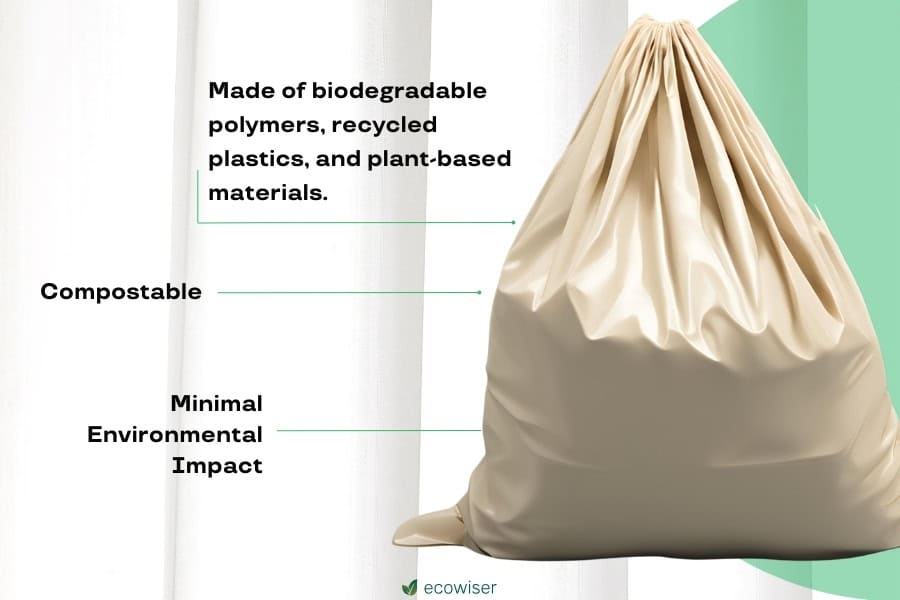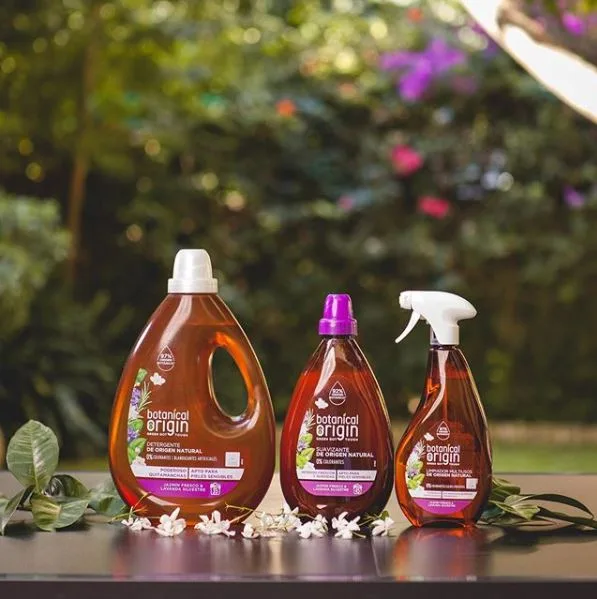The world is facing a big problem: plastic waste. Since the 1950s, we have produced 9.2 billion tons of plastic, but most of it is still in landfills or the environment. This plastic waste comes from single-use plastic products, including trash bags, straws, and food packaging, that are used for just a few minutes before being thrown away.
Managing the recycling of plastic is hard. The U.S. was able to recycle just 4% of plastic waste in 2019. This means that a lot of plastic ends up in our oceans, harming marine life and ecosystems.
So, where do contractor trash bags stand in contributing to plastic waste? You would be surprised to know that, according to the EPA, the United States generates approximately 600 million tons of construction and demolition (C&D) waste every year.
Contractor trash bags are vital in construction, renovation, and heavy-duty waste disposal. These bags are designed to handle large volumes of debris and withstand sharp materials. However, the environmental impact of traditional contractor trash bags is catastrophic.
In this article, we’ll walk you through the severe consequences of using conventional contractor trash bags and the numerous benefits of switching to eco-friendly and reusable trash bag alternatives.
Let’s begin with the details of what contractor trash bags are and why they’re commonly used.
What Are Contractor Trash Bags?

Contractor trash bags are heavy-duty bags designed for construction sites, renovations, and other high-waste activities. They are made to handle materials such as wood, metal scraps, drywall, and other construction debris that regular garbage bags cannot manage. Their robust design makes them indispensable for managing substantial waste efficiently.
Common materials and debris disposed of in these bags include:
- Construction materials (e.g., drywall, insulation, roofing materials)
- Renovation waste (e.g., flooring, cabinets, countertops)
- Heavy-duty waste (e.g., concrete, asphalt, metal scraps)
Now that we understand what contractor trash bags are and their uses, let’s look at what makes these bags particularly suited for heavy-duty tasks.
What Are Heavy-Duty Contractor Trash Bags Made Of?
The best contractor trash bags are known for their exceptional strength and durability. Unlike regular garbage bags, strong contractor bags are built to withstand the toughest tasks without tearing or puncturing. Key features include thickness, puncture resistance, and reinforced seams.
Heavy-duty contractor bags are often made from high-density polyethylene (HDPE) or low-density polyethylene (LDPE), ensuring they can handle even the heaviest loads. With their durability and strength in mind, let’s explore the environmental impact of using these traditional contractor trash bags.
Also Read: How Environmentally Conscious Recycling Can Change Your Life?
Environmental Impact of Single-Use Contractor Trash Bags

Single-use contractor trash bags significantly impact the environment due to their production, use, and disposal. Made from non-renewable petroleum-based HDPE or LDPE, their manufacture releases greenhouse gases and pollutants. These bags, used for their durability and convenience, contribute to plastic waste after a single use.
Production: The production of these bags is energy-intensive and emits significant greenhouse gases, depleting fossil fuels and polluting the air and water.
Usage and Disposal: After use, most bags end up in landfills, taking hundreds of years to decompose and releasing methane. They also contribute to plastic pollution in natural environments, harming wildlife and ecosystems.
The long-term environmental consequences include soil contamination, water pollution, and greenhouse gas emissions, and these plastics don’t decompose for thousands of years. That’s one of the biggest negative impacts of using single-use plastic, including traditional contractor trash bags, on biodiversity. Another factor that can’t be ignored in the context of plastic contractor trash bags is the thickness of the strong contractor trash bags.
Also Read: A Complete Primer on Using a Compost Bin
How Thick Are Contractor Trash Bags?
Mil refers to the thickness of the material in thousandths of an inch. For example, a 3 mil contractor bag is 0.003 inches thick, while a 4 mil contractor bag is 0.004 inches thick.
This difference in thickness affects the durability and suitability of the contractor’s trash bags for different tasks. 4 mil contractor bags are more resistant to punctures and tears due to their increased thickness. This makes them suitable for heavier-duty use and handling larger or sharper debris.
However, this increased durability comes at a higher cost. 3 mil contractor bags are suitable for general construction and cleanup tasks, while 4 mil bags are recommended for heavier-duty applications such as demolition, excavation, or handling large or sharp debris.
After grasping the pollution these bags cause and understanding some material properties, we’ll consider the financial aspects by comparing the costs of different contractor trash bags.
Also Read: Top 9 Certified Compostable Garbage/Trash Bags for a Greener Home
Are Contractor Trash Bags Cheap?
When considering the price of contractor trash bags, the cost difference between cheap and expensive options is noticeable. While more affordable options might seem cost-effective initially, they often lack durability and strength, leading to more frequent replacements.
For example, Costco contractor bags prices may be lower upfront but contribute to the overall plastic waste problem. On the other hand, eco-friendly options may be more expensive initially but offer long-term cost savings and environmental benefits.
Having examined the environmental and contractor trash bags prices, let’s now look at more sustainable alternatives to traditional contractor bags.
Eco-Friendly Alternatives to Traditional Contractor Bags

Compostable bags are a sustainable alternative to traditional plastic bags. Made from materials like cornstarch or biodegradable polymers, these bags break down naturally without leaving harmful residues. These bags and bin liners offer an environmentally friendly option for waste disposal, significantly reducing the environmental footprint.
To explore the range of sustainable options, we’ll next discuss the different types of eco-friendly contractor bags available.
Also Read: Biodegradable Dustbin Bags: Everything You Need to Know
Types of Eco-Friendly Contractor Bags
There are several types of eco-friendly contractor bags available, including:
Woven contractor bags: Made from recycled or biodegradable materials, these bags are designed for durability and environmental sustainability.
Compostable bags: These bags decompose naturally, reducing the environmental impact of waste disposal.
Fortunately, there are several eco-friendly compostable trash bags, bin liners, and reusable contractor trash bag options available in the market. These bags are made from biodegradable materials, such as recycled ocean plastic, plant-based materials, or compostable plastics. Here are a few sustainable examples of eco-friendly trash bags that Ecowiser supports:

$13.49 per unit
Material: Recycled ocean plastic
Size: Tall trash bags with handles
Characteristics: Strong, leak-proof, and eco-friendly

$13.49 per unit
Material: Recycled ocean plastic
Size: Tall trash bags with handles
Characteristics: Strong, leak-proof, and eco-friendly

$13.49 per unit
Material: Cornstarch-based
Size: 17″ x 19″, small, pack of 2, 15 bags/roll
Characteristics: 100% compostable, leak-proof, and 3x stronger
Now that we’ve covered the types and sustainable buying options, let’s move on to what features to look for when choosing the best eco-friendly contractor trash bags.
Features of the Best Eco-Friendly Contractor Trash Bags
When choosing eco-friendly heavy-duty contractor bags or industrial waste bags, consider factors like strength, durability, and environmental impact. The best eco-friendly contractor trash bags should be as robust as their plastic counterparts while offering benefits like biodegradability and reduced environmental footprint.
Examples include woven contractor bags made from recycled materials and high-strength compostable bags.
With a clear understanding of eco-friendly alternatives, we can now explore the numerous benefits these bags offer.
Why You Should Switch To Eco-Friendly Contractor Trash Bags
Switching to compostable and eco-friendly contractor trash bags significantly reduces plastic waste and pollution. These bags decompose naturally, benefiting soil health and supporting composting systems. The long-term sustainability impact includes a reduction in greenhouse gas emissions and a decrease in environmental pollution.
Beyond environmental benefits, there are also economic advantages to consider.
Economic Benefits
While the initial cost of eco-friendly bags may be higher, they often provide long-term savings. Compostable contractor trash bags reduce the need for frequent replacements, and their use can lead to cost savings in waste management and disposal. Additionally, the potential for positive brand image and consumer support can offer financial benefits for businesses.
In addition to cost benefits, eco-friendly bags also offer practical advantages. Let’s explore these practical benefits next.
Practical Benefits
Eco-friendly contractor trash bags are not only good for the environment but also practical in their application. These bags offer durability and strength comparable to traditional plastic bags, ensuring they can handle heavy-duty waste. They are easy to use and dispose of, making them a convenient choice for construction and renovation projects.
To provide a clearer picture, we’ll now look at some real-world examples and case studies of eco-friendly contractor trash bags in use.
Eco-Friendly Trash Bags Are A Hit In the Real World
Many companies have successfully implemented eco-friendly contractor trash bags in their operations. For instance, construction firms that switched to compostable and woven contractor bags have reported positive results, including reduced waste management costs and improved sustainability metrics. These companies also highlight the ease of integrating these bags into their existing waste management systems.
After seeing how businesses benefit, let’s hear from regular consumers, and people like you and learn what they have to say about switching to these eco-friendly bags.
Let’s wrap up with key points and encourage the switch to eco-friendly alternatives in the conclusion.
Managing Trash Eco-consciously!
Choosing eco-friendly contractor trash bags is crucial for managing waste sustainably. Compostable and woven contractor bags offer a viable alternative to traditional plastic bags, reducing environmental impact while providing the strength and durability needed for heavy-duty tasks. By making the switch, individuals and businesses can contribute to a healthier planet and more sustainable waste management practices.
While making eco-friendly choices may sometimes be confusing to find the right options, you can always flip the pages of our blog to get directed in the correct path of sustainability. Why don’t you start with these choices of biodegradable dustbin bags?
Finally, for those ready to make the switch, here are some additional resources to help you get started with eco-friendly contractor trash bags.
Frequently Asked Questions
1. What are the benefits of using eco-friendly contractor trash bags?
Eco-friendly contractor trash bags reduce plastic waste and pollution, promote a circular economy, and offer long-term cost savings. Being made from biodegradable polymers or plant-based materials, these eco-friendly bags also decompose easily.
2. How do I choose the best eco-friendly contractor trash bags?
Look for bags made from biodegradable or compostable materials, ensure they are strong and durable, and choose bags that are large enough to handle the volume of waste generated by your project.
3. Can I use eco-friendly contractor trash bags for heavy-duty waste disposal?
Yes, eco-friendly contractor trash bags are designed to be strong and durable, making them suitable for heavy-duty use.
4. Are eco-friendly contractor trash bags more expensive than traditional bags?
While eco-friendly contractor trash bags may be more expensive initially, they offer long-term cost savings by reducing waste disposal costs and promoting a circular economy.







